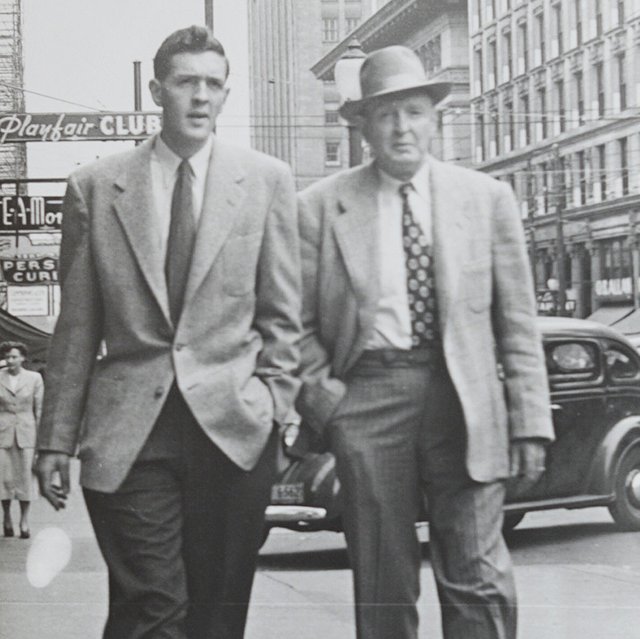Mom’s dad Wells came by one night. I watched him through the kitchen window, parking his car. Always a new sedan of some kind, never German. “Too ostentatious,” he’d say.
“Pop,” as the grandkids called him, was well into his 70s at this point. He was dressed in a crisp suit and had just come from the club in Shaughnessy. It was after nine o’clock at night.
He would often come by unannounced, which seemed at odds with his sense of decorum.
What to say about that sense of decorum? “I’m doing well, Pop. Thank you for asking.” Always the “thank you for asking.” And never would you say the dreaded “what.” Or you leave a table without asking to be excused.
Statements such as, “Have a nice day, Pop,” or, “Take care, Pop,” were frowned upon. Pop felt they were commands. Much better to depart with a statement of feeling: “It was lovely to see you, Pop,” or, “I always have so much fun here, Pop.”
And we always did. Just as we always ate our soup inside-out, as outside-in had “too much of the shoveling about it.”
But that night he stopped by, in his suit, he was without that decorum. He was grinning and joking, standing in the hallway running me through Johnny Carson bits.
Most of it going over my head — I hadn’t seen any Carson — but I so desperately wanted him to keep going. I loved this new, carefree side of him — he was like my buddy now — so I pretended like I knew the names he was bringing up and I laughed along with him despite not understanding anything.
I wish I could remember more of what we talked about. In retrospect, it seems as if he was trying to connect with me in a new way. Like he knew I liked movies and was trying to meet me half way.
I watched him leave through the window. Moving through the street lamp’s cone of misty light. A tall man with a slow grace and a new car. I wanted to be like that. Later that night Mom told me about his diagnosis.
